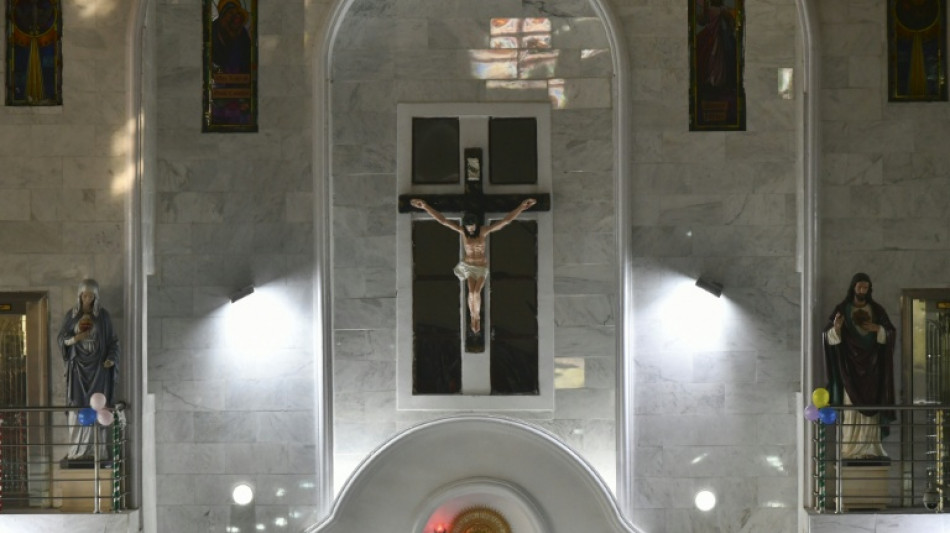
-
 Rybakina downs Swiatek to reach WTA Finals last four
Rybakina downs Swiatek to reach WTA Finals last four
-
Ex-France international Ben Yedder to stand trial on rape charges
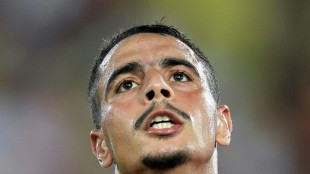
-
 Djokovic confirmed for ATP Finals, says Italian federation boss
Djokovic confirmed for ATP Finals, says Italian federation boss
-
Trent should be remembered for 'great' Liverpool moments, says Slot
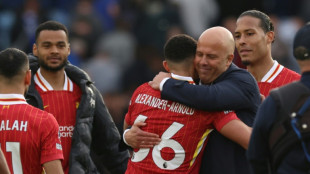
-
 Stock markets diverge despite boost from AI deals
Stock markets diverge despite boost from AI deals
-
Prince William awed by Rio on climate-focused trip to Brazil
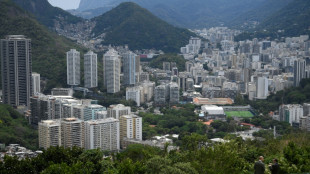
-
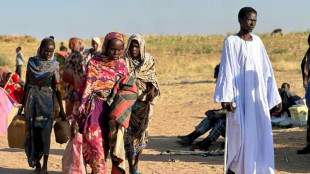 Violence in Sudan's El-Fasher could be war crimes, says top court
Violence in Sudan's El-Fasher could be war crimes, says top court
-
Rybakina downs Swiatek in WTA Finals

-
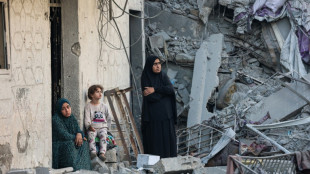 Turkey, Muslim allies say Palestinian self-rule key to Gaza future
Turkey, Muslim allies say Palestinian self-rule key to Gaza future
-
Tens of thousands shelter as typhoon slams into Philippines
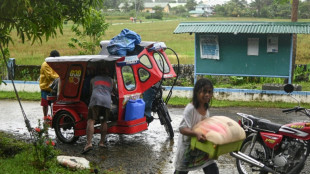
-
 Stock markets rise as tech sector buoyed by fresh AI deal
Stock markets rise as tech sector buoyed by fresh AI deal
-
Vitinha says PSG-Bayern Champions League clash will show who's 'best'

-
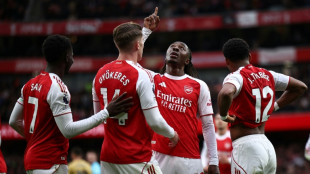 Arsenal: The unstoppable Premier League force?
Arsenal: The unstoppable Premier League force?
-
Denmark inaugurates rare low-carbon hydrogen plant

-
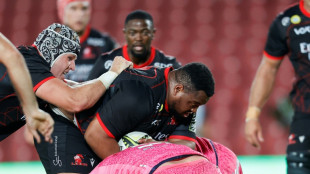 Springboks back Ntlabakanye call-up despite doping probe
Springboks back Ntlabakanye call-up despite doping probe
-
German plans to lower industrial power costs from January

-
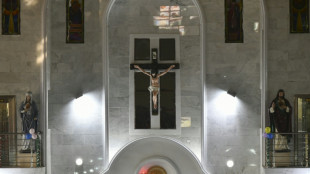 Christian, Muslim Nigerians push back on threatened US strikes
Christian, Muslim Nigerians push back on threatened US strikes
-
Nigeria's Rivers United paired with African champions Pyramids
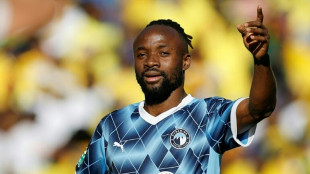
-
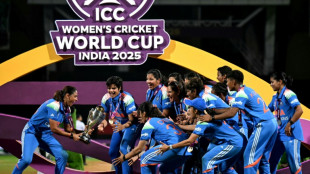 India women cricketers hail new era but challenges remain
India women cricketers hail new era but challenges remain
-
'Heroic' worker praised as man charged over UK train stabbings
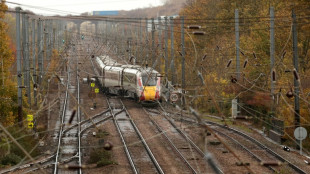
-
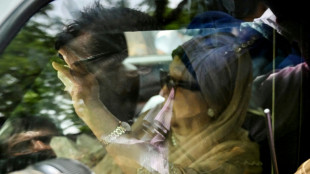 Bangladesh ex-PM Zia to contest elections: party
Bangladesh ex-PM Zia to contest elections: party
-
Tanzania president sworn in as opposition says hundreds killed in protests
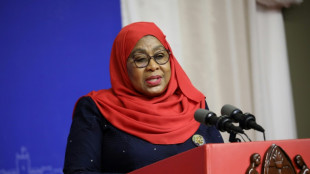
-
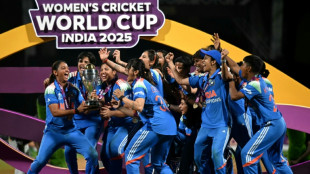 India announces $5.75 million reward for women cricket World Cup winners
India announces $5.75 million reward for women cricket World Cup winners
-
Stock markets rise on AI optimism

-
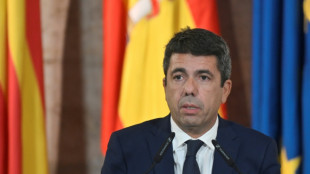 Spain regional leader resigns, a year after deadly floods
Spain regional leader resigns, a year after deadly floods
-
Video game creators fear AI could grab the controller
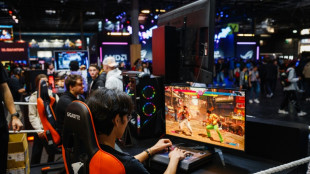
-
 France threatens Shein ban if 'childlike' sex dolls reappear
France threatens Shein ban if 'childlike' sex dolls reappear
-
International cricket returns to Faisalabad with Pakistan-South Africa ODIs
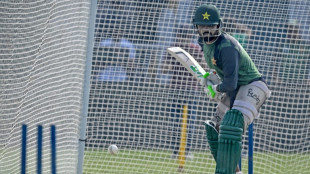
-
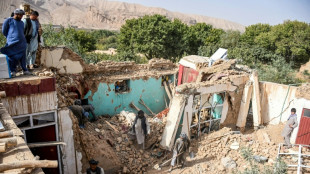 Afghan govt says quake kills 20, injures over 500
Afghan govt says quake kills 20, injures over 500
-
'We're all too rich,' says photo legend Martin Parr
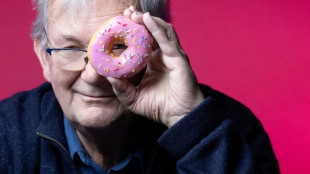
-
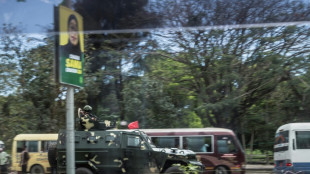 Tanzania president inaugurated as opposition says hundreds dead
Tanzania president inaugurated as opposition says hundreds dead
-
Shafali Verma: India's World Cup hero who disguised herself as boy
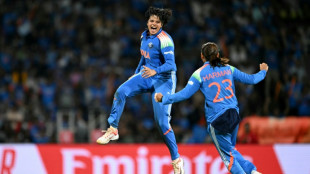
-
 Most equity markets rise on lingering trader optimism
Most equity markets rise on lingering trader optimism
-
Asian markets rise on lingering trader optimism

-
 Afghanistan quake kills 20, injures over 300: health ministry
Afghanistan quake kills 20, injures over 300: health ministry
-
India hails maiden women's World Cup cricket title as game-changer
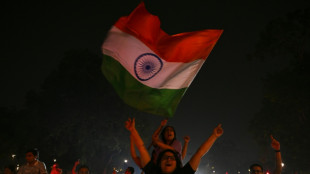
-
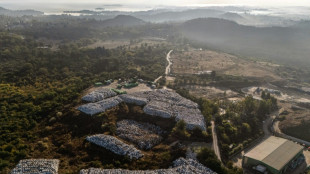 As clock ticks down, Greece tries to clean up its act on waste
As clock ticks down, Greece tries to clean up its act on waste
-
Local fabrics, fibres shine at eco-centred Lagos Fashion Week
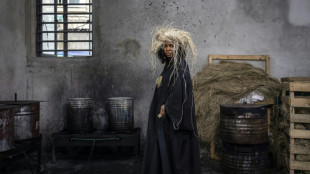
-
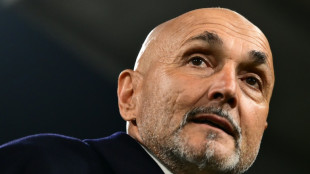 Spalletti bidding to revive Juve and reputation ahead of Sporting visit in Champions League
Spalletti bidding to revive Juve and reputation ahead of Sporting visit in Champions League
-
Tanzania president to be inaugurated as opposition says hundreds dead
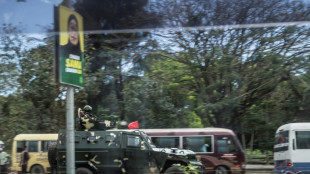
-
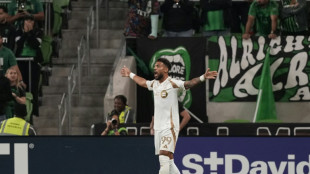 Bouanga brace as LAFC beats Austin 4-1 to advance in MLS Cup playoffs
Bouanga brace as LAFC beats Austin 4-1 to advance in MLS Cup playoffs
-
'Golden age': Japan hails Yamamoto, Ohtani after Dodgers triumph

-
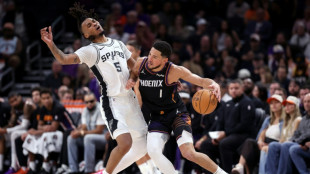 Thunder roll over Pelicans to remain NBA's lone unbeaten team
Thunder roll over Pelicans to remain NBA's lone unbeaten team
-
Hong Kong legislature now an 'echo chamber', four years after shake-up
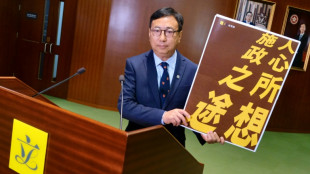
-
 Most Asian markets rise on lingering trader optimism
Most Asian markets rise on lingering trader optimism
-
Andrew to lose his last military rank: defence minister
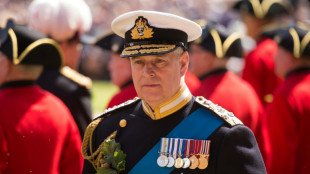
-
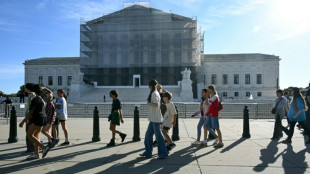 Trump's global tariffs to face challenge before Supreme Court
Trump's global tariffs to face challenge before Supreme Court
-
Barnstorming Bayern face acid test at reigning champions PSG

-
 Alonso shaping new Real Madrid on Liverpool return
Alonso shaping new Real Madrid on Liverpool return
-
Half Yours favourite at Australia's 'race that stops a nation'
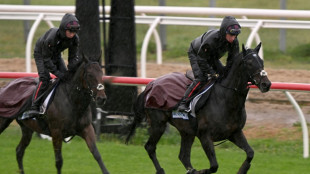
| RBGPF | -3.95% | 76 | $ | |
| RYCEF | 1.24% | 15.34 | $ | |
| CMSD | -0.33% | 23.91 | $ | |
| NGG | -0.41% | 74.94 | $ | |
| CMSC | -0.38% | 23.66 | $ | |
| VOD | -5.42% | 11.43 | $ | |
| SCS | 0.08% | 15.972 | $ | |
| AZN | -0.98% | 81.6 | $ | |
| BCC | -3.68% | 67.99 | $ | |
| RIO | -1.98% | 70.345 | $ | |
| RELX | -0.14% | 44.18 | $ | |
| GSK | -0.94% | 46.425 | $ | |
| BCE | -1.04% | 22.625 | $ | |
| JRI | -0.43% | 13.84 | $ | |
| BP | -0.09% | 35.098 | $ | |
| BTI | 2.51% | 52.51 | $ |

Christian, Muslim Nigerians push back on threatened US strikes
Nigerians across the religious spectrum pushed back Monday on US President Donald Trump's threats of military intervention over the killing of Christians in the country.
Africa's most populous country, which is roughly evenly split between a mostly Christian south and Muslim-majority north, is home to myriad conflicts, which experts say kill both Christians and Muslims without distinction.
Claims of Christian "persecution" in Nigeria have found traction online among the US and European right in recent weeks.
"Christians are being killed, we can't deny the fact that Muslims are (also) being killed," Danjuma Dickson Auta, a Christian and community leader, told AFP.
Trump said on social media over the weekend that he had asked the Pentagon to map out a possible plan of attack.
Asked by an AFP reporter aboard Air Force One if he was considering putting US troops on the ground or using air strikes, Trump replied: "Could be, I mean, a lot of things -- I envisage a lot of things."
"They're killing the Christians and killing them in very large numbers," he said Sunday. "We're not going to allow that to happen."
- Ethnic violence -
Auta, 56, hails from Plateau state, where Christians and Muslims have long lived side by side.
The state has also seen explosions of violence -- including deadly sectarian riots in the capital Jos in 2001 and 2008.
In recent years, Plateau and other states in Nigeria's "Middle Belt" have suffered deadly clashes between mostly Christian farmers and Fulani Muslim herders over dwindling land and resources.
The conflict has often resulted in massive death tolls on the side of the farmers, with entire villages razed.
Smaller-scale attacks on herders -- including retaliatory killings of random ethnic Fulanis or their cattle -- often generate fewer headlines in both the local and international press.
Though the violence often falls across ethnic and religious lines, experts say the root causes lie in poor land management and policing in rural areas.
Words like "genocide" have been thrown around by those in Plateau frustrated by the escalating violence, though typically in ethnic, not religious terms.
Claims of a "Christian genocide" meanwhile have been pushed in recent years by separatist groups in the southeast.
US-based firm Moran Global Strategies has been lobbying on behalf of separatists this year, advising congressional staff on what it said was Christian "persecution", according to disclosure forms.
- Nigeria suggests Trump-Tinubu meeting -
Nigeria also faces a long-running jihadist conflict in its northeast, and "bandit" gangs in the northwest who conduct kidnappings and village raids.
The north's population is mostly Muslim -- meaning most of the victims are, too.
"Even those who sold this narrative of Christian genocide know it is not true," said Abubakar Gamandi, a Muslim who heads a fishermen's union in Borno state, the epicentre of the Boko Haram conflict.
Chukwuma Soludo, the Christian governor of Anambra state, also pushed back against US intervention, saying Washington "must act within the realm of international law".
Others have used the controversy to point out long-festering insecurity in the country and Trump's rhetoric has resonated with some in Nigeria.
Reverend Joseph Hayab, chairman of the Christian Association of Nigeria for the country's north, said he rejected the framing of "farmer-herder violence" and called Trump's comments a "wake-up call".
"People are twisting the story as if Trump said he is coming to fight Nigeria. No, he is coming to deal with terrorists," he told AFP.
Amid Trump's ratcheted-up rhetoric, the Nigerian presidency suggested a meeting between the two leaders to resolve the issue.
Daniel Bwala, spokesman for Nigerian President Bola Tinubu, said "Donald Trump has his own style of communication".
Bwala suggested to AFP Sunday that Trump's post was a way to "force a sit-down between the two leaders so they can iron out a common front to fight their insecurity".
Trump previously attacked South Africa over what he called a "genocide" against its Dutch-descended Afrikaner community, and has offered them refugee status.
Critics of the president said the rhetoric was part of Trump's hardline diplomatic strategy.
L.AbuTayeh--SF-PST
